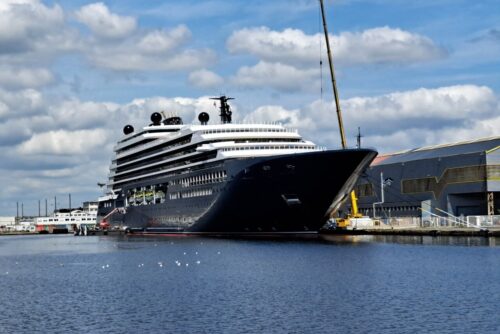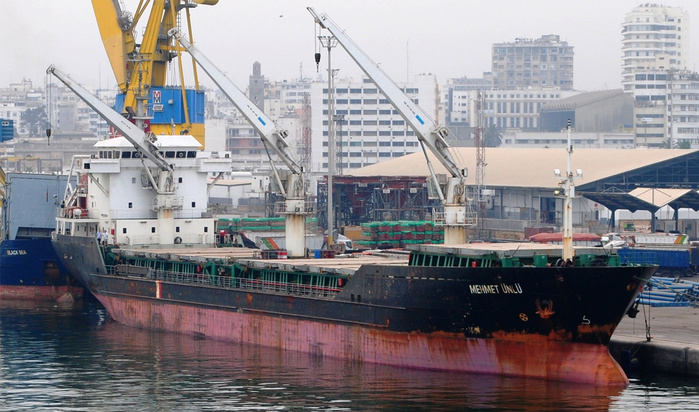
Medical Solutions for Ship Crews Worldwide
Ensuring the health and safety of ship crews worldwide is an increasingly important challenge in maritime industries. As the global shipping industry expands and ships venture further into remote regions, providing comprehensive Medical solutions for ship crews worldwide medical on board solutions becomes paramount. This article explores various medical solutions that can be implemented on vessels, highlighting the necessity of health services tailored specifically for seafarers.
The Importance of Medical Preparedness at Sea
Medical emergencies can occur at any time while at sea, often far from immediate medical assistance. The combination of confined spaces, limited access to supplies, and remote locations significantly complicates the delivery of healthcare on maritime vessels. Thus, medical preparedness is not merely an option; it is a necessity. Ship owners and operators must invest in comprehensive medical solutions that address these unique challenges.
Challenges Faced by Ship Crews
Ship crews face various health-related challenges, including:
- Isolation from land-based medical facilities
- Limited supplies of medical equipment and medication
- High-stress environment leading to mental health issues
- Injuries resulting from accidents or hazardous maritime conditions
Addressing these challenges requires a holistic approach to healthcare on board.
Innovative Medical Solutions
To facilitate effective medical care on ships, several innovative solutions can be implemented:
1. Telemedicine
Telemedicine has revolutionized healthcare access, allowing ship crews to consult with healthcare professionals onshore. Using satellite communication systems, crew members can seek immediate advice for medical conditions or emergencies, ensuring timely treatment even when far from land. This capability is particularly vital in managing chronic illnesses or sudden medical emergencies.
2. Onboard Medical Training
Training crew members in basic first aid and emergency medical response is paramount. Regular medical training sessions can empower personnel to manage common medical situations effectively, reducing anxiety and improving response during emergencies. Additionally, specialized training for crew medical officers can enhance the overall healthcare quality onboard.
3. Medical Kits and Equipment
Ships must be equipped with well-stocked medical kits that meet the specific needs of their crew. These kits should include essential medications, first aid supplies, and equipment such as defibrillators, oxygen supplies, and communication devices. Regular audits of medical supplies can ensure readiness and efficacy in emergency situations.

4. Health Monitoring Systems
Implementing health monitoring systems can help identify potential health issues early. Regular health checks and the use of wearable health technology can provide insights into the crew’s wellbeing, ensuring that any developing condition is addressed proactively.
5. Mental Health Support
Working in isolation for extended periods can lead to mental health challenges. Providing access to psychological support services, such as virtual counseling or mental health workshops, can help mitigate the effects of stress, anxiety, and depression among ship crews. Creating a supportive culture aboard the ship encourages open discussions about mental health and well-being.
Regulatory Compliance and Certification
Ship operators must adhere to international maritime health regulations, including those established by the International Maritime Organization (IMO) and the International Labour Organization (ILO). Compliance with these regulations ensures that medical solutions provided onboard meet recognized safety standards. Furthermore, obtaining certifications for medical equipment and training programs is critical to maintaining high healthcare standards on vessels.
Case Studies: Successful Implementation
Several shipping companies have successfully implemented comprehensive medical solutions, demonstrating best practices:
Case Study 1: ABC Shipping
ABC Shipping introduced telemedicine solutions across its fleet. By partnering with a telemedicine provider, the company ensured that crew members had 24/7 access to medical professionals. This initiative significantly reduced the time taken to diagnose and treat health issues, resulting in improved crew satisfaction and decreased hospitalization rates.
Case Study 2: XYZ Maritime
XYZ Maritime conducted regular training workshops on mental health for its crew. By employing a dedicated mental health officer and providing teletherapy options, the company successfully fostered a supportive environment that enhanced crew morale and reduced absenteeism due to mental health issues.
The Future of Medical Solutions for Ship Crews
The future of medical solutions for ship crews lies in continued innovation and integration of technology. Emerging trends in digital health, artificial intelligence, and advanced telecommunication systems can further enhance medical services on board. By investing in these technologies, shipping companies can ensure their crews receive optimal medical care, even in the most isolated environments.
Conclusion
As the maritime industry continues to evolve, the health and safety of ship crews must remain a priority. Comprehensive medical solutions that address the unique challenges of ship operations are essential. By leveraging technology, enhancing training, and promoting mental health support, shipping companies can foster a healthier and safer working environment for their crews, thus ensuring operational effectiveness and crew wellbeing.
